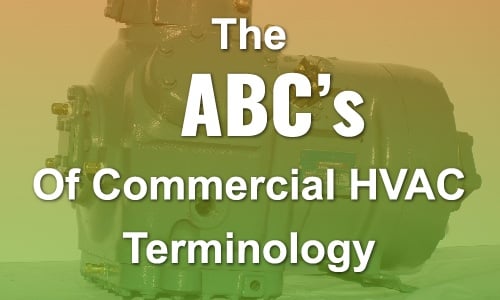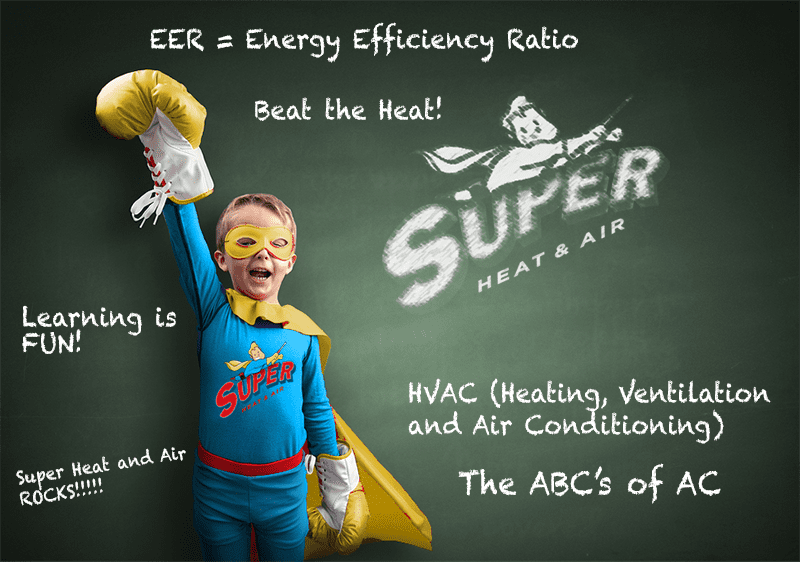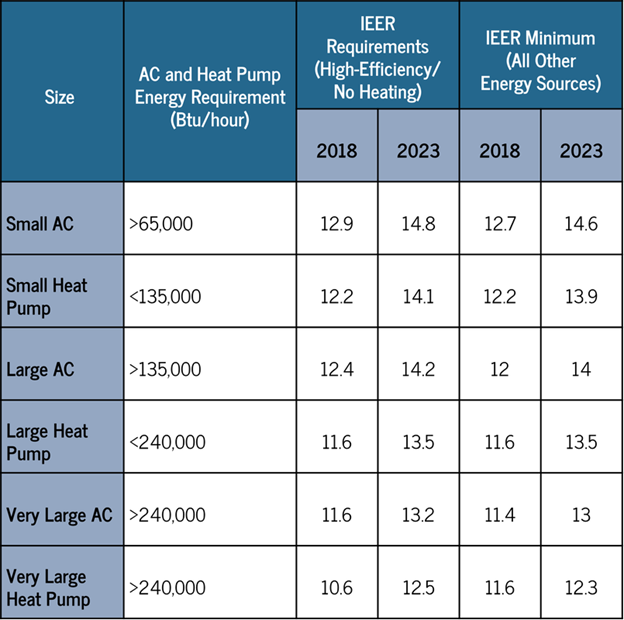Send us an email
Please enter your name and contact info.
Please enter your name and contact info.
Call Us Today! (850) 748-1066

Serving Families Throughout Pensacola
Imagine walking into a seemingly ordinary office building on a hot summer day. As you step inside, a cool and refreshing breeze instantly welcomes you. Have you ever wondered how these commercial buildings maintain such a comfortable environment? The answer lies in the ABCs of commercial HVAC efficiency. Whether you’re a business owner or simply curious about the inner workings of these systems, understanding the key factors that contribute to efficient HVAC operation is essential. In this article, we will explore the importance of proper maintenance, advanced technology, and expert installation when it comes to keeping commercial spaces cool and comfortable. So let’s embark on this journey to discover the secrets behind efficient commercial HVAC systems!

This image is property of cdn2.hubspot.net.
When it comes to commercial buildings, energy costs can be a significant expense. An efficient HVAC system can help reduce these costs by optimizing energy usage. By ensuring that your commercial HVAC system is running at peak efficiency, you can minimize wasted energy and save money on utility bills.
Maintaining good indoor air quality is crucial for the health and well-being of the building occupants. An efficient HVAC system can help remove pollutants, allergens, and contaminants from the indoor air, providing cleaner and healthier air for everyone in the building.
A comfortable environment is essential for productivity and overall satisfaction of occupants in commercial spaces. An efficient HVAC system can effectively regulate the temperature, humidity, and airflow, creating a comfortable and pleasant indoor environment for employees, customers, and visitors.
Investing in an efficient HVAC system and ensuring its proper maintenance can significantly extend the lifespan of the equipment. By optimizing the performance and reducing wear and tear, you can avoid premature breakdowns and costly repairs, ultimately saving you money in the long run.
A commercial HVAC system consists of several key components that work together to provide heating, ventilation, and air conditioning for commercial spaces. These components include the heating unit, cooling unit, ductwork, thermostats, air filters, ventilation system, and control systems.
There are various types of HVAC systems available for commercial buildings, each designed to suit different needs and requirements. These include split systems, rooftop units, packaged units, variable refrigerant flow (VRF) systems, and water-source heat pumps. Each type has its own advantages and considerations, and understanding the differences can help you choose the right system for your commercial space.
To effectively navigate the world of commercial HVAC, it’s helpful to have a basic understanding of common HVAC terms. Some important terms include SEER (Seasonal Energy Efficiency Ratio), EER (Energy Efficiency Ratio), AFUE (Annual Fuel Utilization Efficiency), HSPF (Heating Seasonal Performance Factor), COP (Coefficient of Performance), IEER (Integrated Energy Efficiency Ratio), and MERV (Minimum Efficiency Reporting Value). Being familiar with these terms can help you make informed decisions regarding your HVAC system.
Proper sizing and installation of HVAC equipment are crucial for optimal efficiency. If the system is too large or too small for the space, it can lead to inefficient operation and increased energy consumption. Hiring a professional HVAC contractor who can accurately assess the heating and cooling needs of your commercial building and ensure proper installation is essential for achieving maximum efficiency.
Regular maintenance and inspections are key to maintaining HVAC efficiency. Routine maintenance tasks such as cleaning or replacing air filters, checking refrigerant levels, lubricating moving parts, and inspecting ductwork can help identify and resolve potential issues before they escalate. By keeping your HVAC system well-maintained, you can ensure optimal performance and energy efficiency.
Proper insulation and sealing of the building envelope play a crucial role in HVAC efficiency. Insufficient insulation can result in heat transfer, leading to energy waste and increased workload on the HVAC system. Similarly, air leaks in the ductwork or the building envelope can cause conditioned air to escape and unconditioned air to infiltrate, reducing efficiency. Investing in quality insulation and conducting regular sealing inspections can help improve HVAC efficiency.
Optimizing thermostat settings and programming can have a significant impact on HVAC efficiency. By adjusting the temperature settings based on occupancy patterns and utilizing setback or programmable thermostats, you can reduce energy consumption during unoccupied periods while ensuring a comfortable environment when needed. Smart thermostats that can learn occupancy patterns and provide remote access and control offer even greater energy-saving potential.
Proper airflow balance and distribution are essential for HVAC efficiency. Blocked or restricted airflow can lead to inadequate cooling or heating, inefficient operation, and increased energy consumption. Regularly inspecting and maintaining the ventilation system, ensuring the cleanliness of air filters, and balancing airflow throughout the building can help optimize HVAC efficiency.
Effective air filtration and ventilation are vital for maintaining indoor air quality and HVAC efficiency. High-quality air filters help remove dust, allergens, and pollutants from the air, enhancing occupant health and prolonging the lifespan of HVAC equipment. Additionally, proper ventilation, including the use of fresh air intake systems and exhaust systems, helps remove stale air and improve indoor air circulation, contributing to optimal HVAC performance.
One of the most significant benefits of high HVAC efficiency is cost savings on energy bills. By reducing energy consumption and optimizing system performance, you can lower your monthly utility costs, putting more money back into your business.
An energy-efficient HVAC system can have a positive impact on the environment by reducing carbon emissions. By minimizing energy waste and utilizing cleaner energy sources, you can contribute to environmental sustainability and help combat climate change.
An efficiently operating HVAC system plays a crucial role in maintaining good indoor air quality, which is directly linked to occupant health and productivity. Cleaner air, appropriate temperature and humidity levels, and adequate ventilation create a comfortable and healthy environment, enhancing the well-being and productivity of employees and customers.
Regular maintenance and proper HVAC usage help prevent equipment breakdowns and the need for costly repairs. By ensuring that your HVAC system operates at peak efficiency, you can avoid unexpected disruptions, prolong the lifespan of the equipment, and save money on repairs and replacements.
High HVAC efficiency is a valuable asset when it comes to building value and marketability. Energy-efficient buildings are in high demand as they offer long-term cost savings, environmental benefits, and healthier indoor environments. Investing in an efficient HVAC system can make your commercial property more attractive to potential tenants or buyers, giving you a competitive advantage in the market.

This image is property of b2926758.smushcdn.com.
One of the most effective strategies for improving commercial HVAC efficiency is investing in high-efficiency HVAC systems. Energy-efficient technologies, such as variable speed drives, high-efficiency heat exchangers, and advanced control systems, can significantly reduce energy consumption while maintaining optimal comfort levels.
Ensuring proper sizing and design of HVAC equipment and ductwork is crucial for optimizing efficiency. Oversized or undersized equipment can lead to energy waste, uneven temperature distribution, and increased wear and tear. Similarly, poorly designed or leaky ductwork can result in air leakage, reduced airflow, and decreased efficiency. Working with an experienced HVAC professional who can accurately size and design the system is essential for achieving maximum efficiency.
Regular maintenance and tune-ups are essential to keep your HVAC system operating at its best. This includes tasks such as cleaning or replacing air filters, checking refrigerant levels, lubricating moving parts, and inspecting the overall system for any signs of wear or damage. By investing in routine maintenance and tune-ups, you can optimize the performance and efficiency of your HVAC system while minimizing the likelihood of breakdowns and costly repairs.
Upgrading to smart thermostats and controls can provide significant energy-saving benefits. These advanced devices can learn occupancy patterns, adjust temperature settings automatically, and provide remote access and control. By utilizing smart thermostats, you can ensure that your HVAC system operates efficiently based on actual usage, reducing energy waste during unoccupied periods and providing comfort when needed.
Proper sealing of air leaks and improving insulation are essential for reducing energy waste and improving HVAC efficiency. Conducting regular inspections to identify and seal air leaks in the building envelope and the ductwork can prevent conditioned air from escaping and unconditioned air from infiltrating. Additionally, investing in quality insulation can minimize heat transfer, reducing the workload on the HVAC system and improving overall efficiency.
Ensuring proper airflow and ventilation in your commercial space is crucial for HVAC efficiency. Regularly cleaning and inspecting the ventilation system, balancing airflow throughout the building, and utilizing fresh air intake and exhaust systems can help maintain optimal airflow and circulation, enhancing overall efficiency.
Understanding energy efficiency ratings is important when evaluating HVAC systems. Here are some common ratings to be familiar with:
Understanding these ratings can help you compare the energy efficiency of different HVAC systems and make informed decisions when selecting equipment for your commercial space.

This image is property of hvactoday.com.
There are several programs and incentives available that can help offset the cost of energy-efficient HVAC upgrades for commercial buildings. These programs can vary by region and may include:
The federal government and various state governments offer programs that provide financial incentives for energy-efficient upgrades, including HVAC systems. These programs often include tax incentives, loans, grants, or rebates to support businesses in implementing energy-efficient measures.
Many utility companies offer incentive programs specifically for commercial customers. These programs can provide rebates, discounts, or financing options for energy-efficient HVAC upgrades. Contact your local utility company to inquire about any available incentives.
Certain energy-efficient HVAC upgrades may qualify for federal tax credits or deductions. The Energy Policy Act and other federal tax incentives can provide significant tax savings for commercial building owners who invest in energy-efficient equipment.
Various organizations, including energy efficiency organizations and HVAC manufacturers, offer rebate programs for energy-efficient HVAC upgrades. These rebates can help offset the initial cost of equipment installation and improve the return on investment.
Taking advantage of these incentives and rebates can make energy-efficient HVAC upgrades more financially feasible for commercial building owners, providing savings and promoting sustainability.
Hiring a reputable HVAC company is crucial when it comes to commercial HVAC efficiency. A professional and experienced HVAC contractor can assess your specific needs, provide expert recommendations, and ensure proper installation and maintenance of your HVAC system. Working with a trusted contractor can help optimize system performance, extend equipment lifespan, and maximize energy efficiency.
When selecting an HVAC contractor for your commercial building, it is essential to consider their certifications and qualifications. Look for contractors who are licensed, insured, and certified by reputable organizations such as North American Technician Excellence (NATE). These certifications indicate that the contractor has met industry standards and possesses the necessary skills and knowledge to handle commercial HVAC systems.
To choose the right HVAC contractor for your commercial building, consider the following factors:
By carefully selecting the right HVAC contractor, you can establish a long-term partnership that ensures the efficiency, reliability, and performance of your commercial HVAC system.

This image is property of affiliatedparts.com.
Numerous commercial buildings have successfully implemented energy-saving initiatives to improve HVAC efficiency. For example, retrofitting outdated HVAC systems with high-efficiency equipment, implementing advanced control systems to optimize energy usage, and incorporating renewable energy sources such as solar panels or geothermal systems have proven effective in reducing energy consumption and costs while maintaining occupant comfort.
Retail spaces often have unique HVAC requirements due to variable occupancy levels, large open spaces, and the need to maintain optimal temperatures for merchandise. Retailers have achieved significant HVAC efficiency improvements through various strategies, such as utilizing demand-controlled ventilation, implementing occupancy sensors to regulate airflow, and integrating smart thermostats to optimize temperature settings based on customer traffic.
Efficient HVAC systems have played a crucial role in improving energy efficiency and occupant comfort in office buildings. Building owners have implemented strategies such as efficient zoning systems, highly insulated windows, and advanced control systems to optimize energy usage, reduce hot and cold spots, and create personalized comfort zones for employees. These initiatives have led to substantial energy savings and improved indoor environments.
These case studies highlight the successful implementation of energy-efficient HVAC measures across a range of commercial buildings. By learning from these examples, commercial building owners can gain valuable insights and ideas for improving their own HVAC efficiency.
The future of commercial HVAC efficiency lies in advancements in HVAC technology. Manufacturers are constantly developing new technologies and innovations to enhance energy efficiency, improve system performance, and offer greater control and customization options. Advancements in variable refrigerant flow (VRF) systems, energy recovery systems, and smart controls are expected to shape the future of commercial HVAC efficiency.
The integration of renewable energy sources into commercial HVAC systems is a growing trend. Solar panels, geothermal systems, and wind turbines can help offset energy consumption and reduce reliance on traditional energy sources. As renewable energy technology becomes more accessible and cost-effective, more commercial buildings are expected to incorporate these solutions to achieve greater energy efficiency.
The rise of smart buildings and automated systems is set to revolutionize commercial HVAC efficiency. Building automation systems, internet of things (IoT) technology, and advanced data analytics can optimize energy usage, monitor equipment performance, and enable remote control and monitoring. By leveraging these technologies, commercial building owners can achieve unparalleled levels of efficiency and comfort while gaining valuable insights into their HVAC systems.
As the demand for energy-efficient and sustainable solutions grows, the future of commercial HVAC efficiency looks promising. By staying informed about emerging technologies and implementing best practices, commercial building owners can continue to improve energy efficiency, reduce costs, and create healthier, more comfortable environments for occupants.
In conclusion, the importance of commercial HVAC efficiency cannot be overstated. From cost savings and improved indoor air quality to occupant comfort and extended equipment lifespan, there are numerous benefits to be gained from optimizing HVAC efficiency. By understanding HVAC systems, considering various factors that affect efficiency, implementing effective strategies, and leveraging incentives, commercial building owners can make significant strides in improving HVAC efficiency. With the help of reputable HVAC contractors and by staying updated on the latest trends and technologies, the future of commercial HVAC efficiency looks bright.